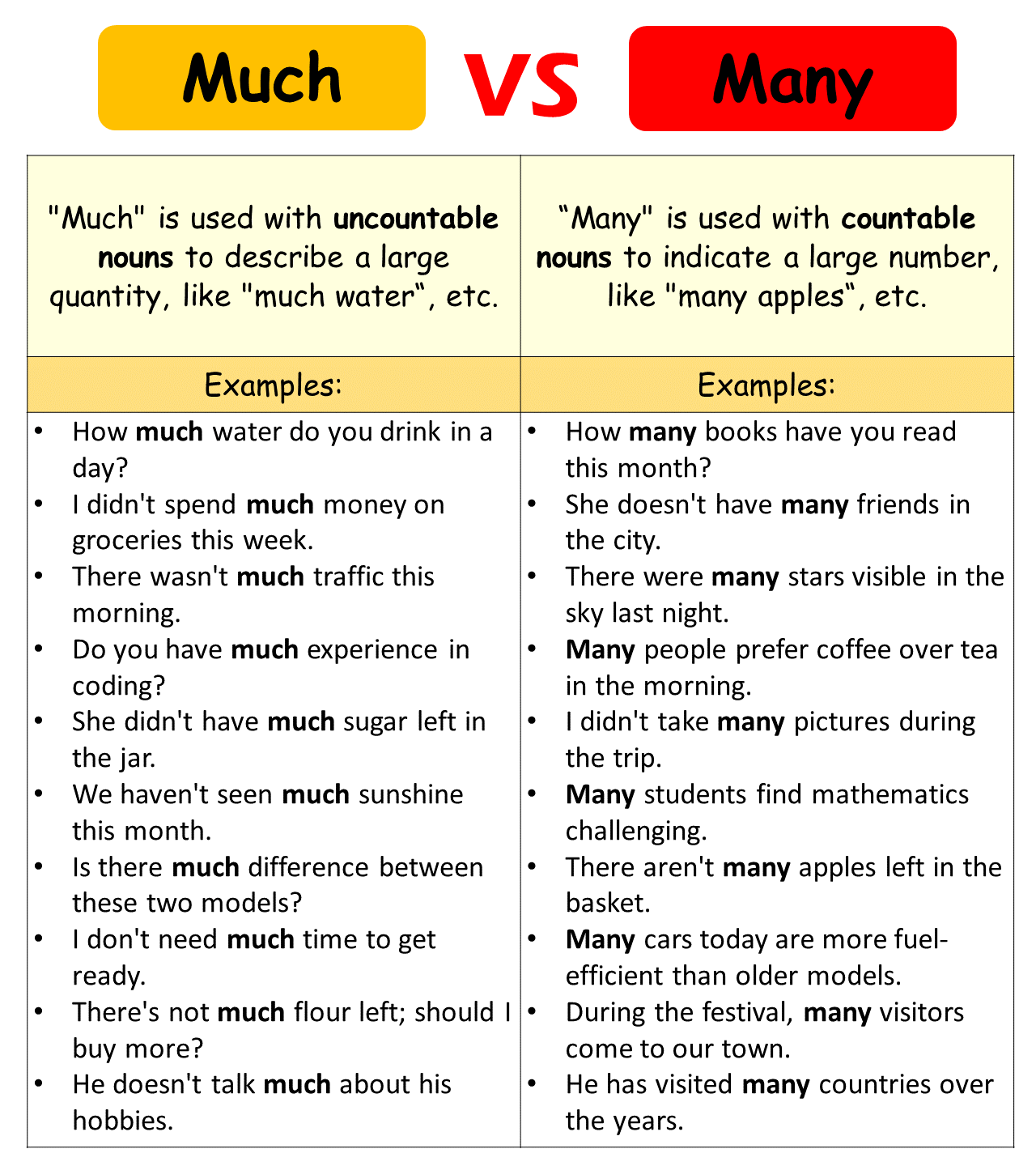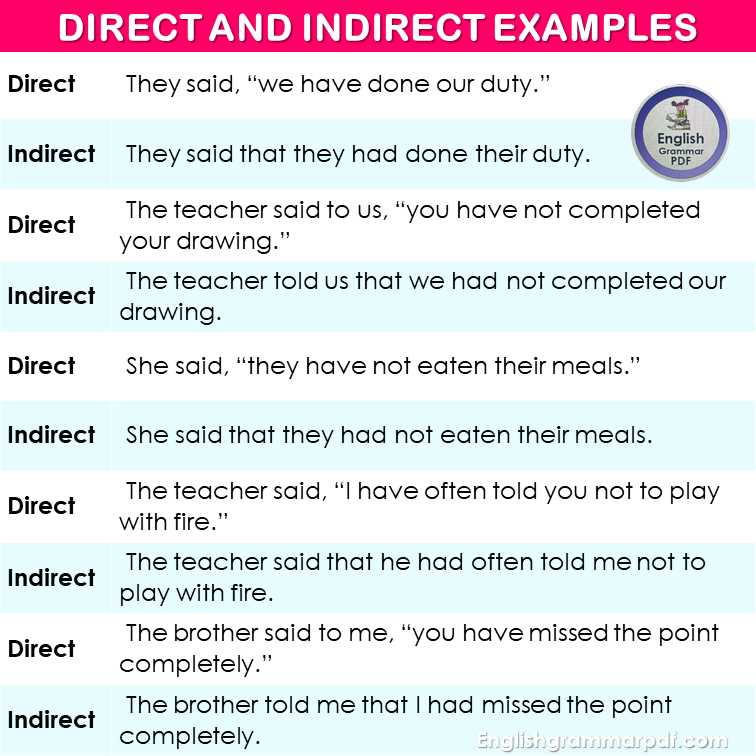When we talk or write in English, we often use the words “much” and “many” to describe how much of something there is. But these two words are not used in the same way, and knowing when to use each one can be a bit tricky. “Much” is used with things we can’t count, like water or love. On the other hand, “many” is for things we can count, like apples or cars. Understanding the difference between “much” and “many” helps make our English clearer and more correct.
MUCH vs MANY
“Much” is used with uncountable nouns to describe a large quantity, like “much water,” while “many” is used with countable nouns to indicate a large number, like “many apples.”
Rules to Use “Much”
- With Uncountable Nouns: Use “much” for things you cannot count individually, such as liquids, concepts, or substances (e.g., water, love, sand).
- In Questions and Negative Sentences: “Much” is commonly used in questions and negative sentences to inquire or state about the quantity of something uncountable.
- Less Common in Positive Statements: In positive sentences, “much” is less common and usually appears with “so,” “too,” or “very.”
Example Sentences
- How much water do you drink in a day?
- I didn’t spend much money on groceries this week.
- There wasn’t much traffic this morning.
- Do you have much experience in coding?
- She didn’t have much sugar left in the jar.
- We haven’t seen much sunshine this month.
- Is there much difference between these two models?
- I don’t need much time to get ready.
- There’s not much flour left; should I buy more?
- He doesn’t talk much about his hobbies.
Rules to Use “Many”



